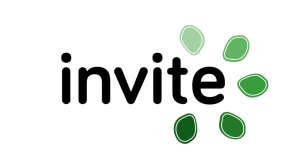Innovations in plant variety testing in Europe
 WHAT IS INVITE?
WHAT IS INVITE?
The INVITE project has selected ten species: apple, fodder grass, sunflower, soybean, wheat, maize, potatoes, tomato, oilseed rape and lucerne. This will make it possible to represent the main characteristics of propagation, food and feed uses, and cultivation activity at European Union level. In these cases, bioindicators associated with efficiency in the use of plant resources, sustainability and resilience will be identified, and new phenotyping and genotyping tools will be developed to measure them.
OBJECTIVES
INVITE tends to improve both the efficiency of variety testing and the information available to stakeholders on plant performance under a range of production conditions and biotic and abiotic stresses:

WHY?
Around the world there are different types of agriculture, more or less specialized, with technology included or more traditional, etc. That is why the INVITE project seeks to analyze what is the reaction of farmers regarding agricultural innovations proposed in order to evaluate the strengths, weaknesses, opportunities and threats of the sector.
METHODOLOGY
Some of the innovations that the project will implement are: models and statistical tools that allow predicting the yield in a variety of environments and crop management practices (considering the economic return), organizational types to improve the management of test networks and reference collections and guidelines for policy makers to include new features and improve harmonization.
DURATION
July 1, 2019 – June 30, 2024
PROJECT WEBSITE
LINK TO CORDIS
The INVITE project has received funding from the European Union’s Horizon 2020 research and innovation programme under grant agreement no. 817970.

PARTICIPATING PARTNERS
| COUNTRY | ORGANIZATION | TYPE OF ENTITY |
| France | Institut National de Recherche pour l’Agriculture, l’Alimentation et l’Environnement – INRAE | University |
| France | Université d’Angers – UA | University |
| France | Association de Coordination Technique Agricole – ACTA | Association |
| France | INRAE Transfert SAS | Company |
| France | Institut du Vegetal – ARVALIS | Research Center |
| France | Centre Technique Interprofessionnel des Fruits et Legumes – CTIFL | Research Center |
| France | Terres Inovia | Research Center |
| France | Comitor Consulting SARL | Company |
| France | Community Plant Variety Office – CPVO | Government agency |
| France | Groupe d’Etude et de Controle des Varietes et des Semences – GEVES | Research Center |
| Germany | Universitaet de Hohenheim | University |
| Germany | Bundessortenamt – BSA | Government organization |
| Germany | Dienstleistung für die Züchtung – NPZ INNOVATION GMBH | Company |
| Switzerland | Eidgenoessisches Departement fuer Wirtschaft, Bildung und Forschung- WBF | Government agency |
| Switzerland | Forschungsinstitut fur Biologischen Landbau Stiftung – FiBL | Research Center |
| Netherlands | Stichting Wageningen Research – WUR | Research Center |
| Netherlands | Wageningen University and Research | University |
| Netherlands | Stichting Nederlandse Algemene Kwaliteitsdienst Tuinbouw | Non-profit organization |
| Ireland | Agriculture and Food Development Authority – TEAGASC | Government agency |
| Spain | Instituto de Investigación y Tecnología Agroalimentarios – IRTA | Research Center |
| Spain | Centro de Investigación en Economía y Desarrollo Agroalimentario – CREDA | University |
| Spain | Centro de Investigación en Genómica Agrícola – CSIC-IRTA-UAB-UB | University |
| United Kingdom | NIAB Group | Research Center |
| United Kingdom | Scottish Government | Government body |
| United Kingdom | James Hutton Institute | Institute |
| Italy | Consiglio per la Ricerca in Agricoltura e l’Analisi dell’Economia Agraria – CREA | Research Center |
| Italy | Centro di Sperimentazione Laimburg | Research Center |
| Belgium | Eigen Vermogen van het Instituut voor Landbouw – EV ILVO | Research Center |
| Belgium | Euroseeds | Non-profit organization |
| Belgium | Better3Fruit NV | Company |
| Belgium | Arcadia International GEIE | Consultancy |
| Belgium | Centre Wallon de Recherches Agronomiques – CRA-W | Research Center |
| Poland | Instyut Ogrofnic Twa – Panstwowy Instytut Badawczy – InHort | Research Center |
| Austria | Osterreichische Agentur fur Gesundheit und Ernahrungssicherheit – AGES | Research Center |
| Czech Republic | Central Institute for Supervising and Testing in Agriculture – ÚKZÚZ | Government organization |
| Hungary | Nemzeti Elelmiszerlanc-Biztonsagi Hivatal – NÉBIH | Government organization |
THE ROLE OF CREDA
TASK
In the INVITE project, CREDA participates in the WP6 dedicated to the analysis of improved variety test networks. In this, the center leads the impact assessment task that aims to determine the economic impact of feasible improvements to test networks, and is based on an annual crop and a perennial species tested in two countries. In addition, it is also responsible for providing information on the environmental impacts of alternative options.
CREDA assesses the economic impact by simulating the consequences on farmers’ incomes of reducing the time between registration and adoption of genotypes and giving a specific recommendation. It also assesses the likelihood of adoption of the improvements proposed by INVITE.
NEWS
The INVITE project is looking for participants for a survey!
The European project in which the CREDA participates, seeks stakeholders in the development of new plant varieties to answer a survey and determine the main factors affecting decision-making.







